AP
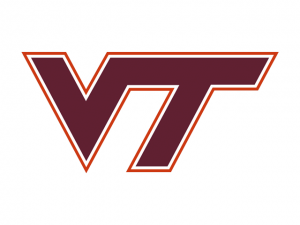 BLACKSBURG, Va. (AP) — Kyron Drones threw three touchdowns passes and rushed for two more scores to lead Virginia Tech to a 38-21 victory over Pittsburgh on Saturday night.
BLACKSBURG, Va. (AP) — Kyron Drones threw three touchdowns passes and rushed for two more scores to lead Virginia Tech to a 38-21 victory over Pittsburgh on Saturday night.
Drones completed 12 of 19 passes for a career-high 228 yards and rushed for 41 yards for the Hokies (2-3, 1-0 Atlantic Coast Conference), who snapped a three-game losing streak and halted a three-game skid to the Panthers. Virginia Tech also ended a nine-game losing streak to Power 5 opponents.
“We’ve battled each and every week and fought back in games,” Virginia Tech coach Brent Pry said. “We’ve been there. It’s a group that understands. We talked a lot this week about making our plays in the moment and doing the job that we can do. It doesn’t have to be a magic show. Just do your job and the plays will come, and I think they did that tonight.”
The Hokies scored two touchdowns in the second quarter to break a 7-all tie and never trailed after that. Drones scored on a 2-yard run with 13:07 left in the first half and then threw a 12-yard touchdown pass to Bhayshul Tuten with 21 seconds left in the half to give the Hokies a 21-7 lead.
Tuten rushed for 109 yards for Virginia Tech, which finished with 427 yards of offense.
Phil Jurkovec threw for 235 yards and two touchdowns to lead the Panthers (1-4, 0-2), who have lost four straight. He completed just 11 of 22 passes, was sacked four times, and fumbled.
“They made more plays than we did,” Pittsburgh coach Pat Narduzzi said. “We didn’t make enough plays today. … We’ll evaluate where we are. We’ve got an open week to check it out, but it’s not up to the Pitt standards, (or) my standards. Just extremely disappointed in the effort today.”
TAKEAWAYS
Pittsburgh: Missing three starters on the offensive line because of injuries, the Panthers couldn’t run the ball against one of the ACC’s worst rush defenses — the Hokies were 13th in the league, allowing 212.5 yards per game. The Panthers, who rushed for just 38 yards, need to find some answers on offense during an upcoming bye week, especially with a tough late-season schedule looming.
“Offensively, we didn’t do anything,” Narduzzi said. “We had two explosive plays, but other than that, I didn’t feel it at all. We’ll gather in the open week, do a major self-scout, figure out where we are and what we have to do to right the ship.”
Virginia Tech: The Hokies’ offense has been sputtering all season and for much of coach Brent Pry’s tenure but ran on all cylinders against Pittsburgh. The Hokies amassed more than 400 yards for just the third time in Pry’s 16 games as the coach.
TOUGH START
Pittsburgh had suffered just one losing season in Narduzzi’s prior eight seasons at the helm, but the Panthers are off to their worst start since he became the coach before the 2015 season. In 2017, they started the season 1-3 and finished 5-7. He said the team’s current situation marked the biggest challenge of his career.
“No question about it,” he said. “There’s no doubt about it. We haven’t been in this position. Every week is a challenge. We’ve just got to take it. It’s what we did. It’s how we’re playing right now.”
BIG PLAY JAY
Pittsburgh cut Virginia Tech’s lead to 28-21 late in the third quarter on a fumble return for a touchdown and had momentum, but the Hokies came up with their biggest play of the game when Drones found Jaylin Lane for a 53-yard touchdown with 3:27 left in the third. That pushed the Hokies’ lead to 35-21, and they never looked back.
“It was great to see Jay make that play,” Pry said. “And boy, that was timely. We had some adversity hit. Kyron stepped up and delivered the ball. I don’t know what the issue was with the coverage, but he (Lane) was pretty wide open, and he knew what to do with it. That was a big play in the game.”
UP NEXT
Pittsburgh: The Panthers host Louisville on Oct. 14.
Virginia Tech: The Hokies play at Florida State on Saturday.
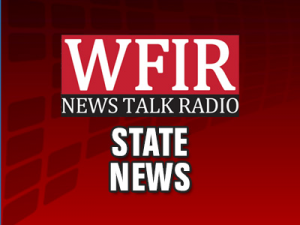 RICHMOND, Va. (AP) — A Virginia jury has convicted a former schools superintendent on a misdemeanor charge in connection with what prosecutors said was the retaliatory firing of a teacher who reported that an elementary school student inappropriately touched her.
RICHMOND, Va. (AP) — A Virginia jury has convicted a former schools superintendent on a misdemeanor charge in connection with what prosecutors said was the retaliatory firing of a teacher who reported that an elementary school student inappropriately touched her.
Former Loudoun County Public Schools Superintendent Scott Ziegler was acquitted on a separate misdemeanor count after the five-day trial, local news outlets reported. The charges stemmed from a special grand jury commissioned by Attorney General Jason Miyares that investigated the school system’s widely criticized response to two sexual assaults committed by a high school student against female classmates in 2021.
“Justice has finally been served in Loudoun County,” Miyares said in a statement.
Ziegler faces up to a year in jail, in addition to a possible fine, according to the attorney general’s office. His sentencing is scheduled for Jan. 4.WRC-TV in Washington, D.C. reported Ziegler and his attorney left the courthouse Friday afternoon without answering questions.
“I can tell you that we intend to file a motion to set aside the jury’s verdict, which will happen prior to sentencing and before any appeal,” the attorney, Erin Harrigan, wrote in an email Saturday to The Associated Press.
She offered no further comment.
The charges heard this week were not directly related to the matter of the assaults but to allegations by a special education teacher, Erin Brooks, who said the school system retaliated against her after she reported that a special needs student at an elementary school had repeatedly touched her inappropriately.
“Nearly two years ago, Loudoun County Public Schools and the Loudoun County School Board were thrown into the public spotlight for all the wrong reasons. One of the casualties of their neglect and mismanagement led to the retaliatory firing of a dedicated and caring school teacher. Today, my office brought a measure of justice for Erin Brooks,” Miyares said in the statement.
John Whitbeck, Brooks’ attorney, told The Washington Post that Brooks was pleased with Friday’s verdict.
Ziegler still faces a separate misdemeanor charge of false publication, which is set for trial next year, court records show.
Miyares empaneled the grand jury after Virginia Gov. Glenn Youngkin, on his first day in office, issued an executive order requesting an investigation by the attorney general’s office of the school system’s conduct in connection with the assaults.
The school system sought to quash the investigation, calling it politically motivated. But the Virginia Supreme Court ruled it could move forward.
Youngkin and Miyares, both Republicans, had criticized the school board during their successful 2021 campaigns. The assaults attracted national attention in part because the boy was wearing a skirt when he committed at least one of the attacks. The boy was later convicted in juvenile court.
The grand jury issued a scathing report that accused the school system of mishandling the teenage perpetrator and said authorities ignored multiple warning signs that could have prevented the second assault.
The school board unanimously voted to fire Ziegler late last year, shortly after the report was issued.
A perjury case against the district’s longtime spokesman that also stemmed from the grand jury’s probe previously went to trial. A jury acquitted Wayde Byard in that matter.
 The father of a Virginia student sexually assaulted in her high school bathroom has been pardoned for his actions while protesting the school’s handling of the case at a meeting two years ago. Virginia Republican Gov. Glenn Youngkin announced Sunday that he cleared Scott Smith of his disorderly conduct conviction. The incident became a rallying point for Youngkin’s gubernatorial campaign that year and the so-called “parents’ rights” movement nationwide. The teenager convicted of assaulting Smith’s daughter was later found guilty of forcibly touching another classmate at a nearby school while awaiting trial in juvenile court. A special grand jury found a “stunning lack of openness, transparency and accountability” from the school district but no evidence of a coordinated cover-up.
The father of a Virginia student sexually assaulted in her high school bathroom has been pardoned for his actions while protesting the school’s handling of the case at a meeting two years ago. Virginia Republican Gov. Glenn Youngkin announced Sunday that he cleared Scott Smith of his disorderly conduct conviction. The incident became a rallying point for Youngkin’s gubernatorial campaign that year and the so-called “parents’ rights” movement nationwide. The teenager convicted of assaulting Smith’s daughter was later found guilty of forcibly touching another classmate at a nearby school while awaiting trial in juvenile court. A special grand jury found a “stunning lack of openness, transparency and accountability” from the school district but no evidence of a coordinated cover-up.
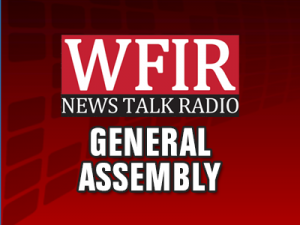 RICHMOND, Va. (AP) — The Virginia legislators who have been leading negotiations over the months-delayed state budget announced Friday they have reached agreement on the “major components” of a compromise proposal that would boost education spending and offer some tax relief.
RICHMOND, Va. (AP) — The Virginia legislators who have been leading negotiations over the months-delayed state budget announced Friday they have reached agreement on the “major components” of a compromise proposal that would boost education spending and offer some tax relief.
The apparent deal includes a one-time tax rebate of $200 for individuals and $400 for joint filers, according to a statement from the negotiators. It would also increase the standard deduction, reinstate a popular sales tax holiday and allocate more revenue to public education and college financial aid, the statement said.
The actions are aimed at providing relief to low- and middle-income citizens and Virginia businesses, the negotiators said. The full framework of the proposed legislation — which will need approval from the full General Assembly and the governor — was not released. The statement did not specify the total proposed amounts of tax cuts or spending allocations, and it did not elaborate on any remaining sticking points.
“While the major components have been agreed to, our conferees and staff will be completing the final touches in the days to come. The deal is one that provides Virginians with additional tax relief and unprecedented investments in education, natural resources, and behavioral health. It is a win-win for the citizens of Virginia,” the money committee leaders — Democratic Sens. Janet Howell and George Barker and GOP Del. Barry Knight — said in a joint statement.
The politically divided General Assembly ended its regular session in February without full agreement on adjustments to the two-year state budget initially adopted in 2022. The state operates on a two-year budget cycle, with the plan initially adopted in even-numbered years and amended in odd-numbered years
Closed-door negotiations between the GOP-controlled House and Democratic-controlled Senate have plodded since then, frustrating school districts, local governments, and special interest groups and their lobbyists.
“While the negotiations have been deliberate and extended, we are very pleased that the outcome is both fair and balanced toward the priorities of the House and Senate. In an era when partisanship often prevails, the negotiations were cordial and respectful,” Friday’s statement said.
GOP House Speaker Todd Gilbert said in a statement that the development was “encouraging” and that discussions about when lawmakers might convene for a potential special session to consider the compromise legislation would take place over the coming week.
“We’re closer than ever before to providing real tax relief to Virginia families who are being squeezed by inflation and other skyrocketing costs, and providing historic levels of support for our schools,” Gilbert said.
Leaders of the broader Democratic Senate majority also signaled support for the proposal in written statements. Caucus Chair Sen. Mamie Locke said Friday’s development marked a “huge triumph for all Virginians.”
The budget negotiators said earlier this week, when they told reporters they were close to a final product, that a special session would likely take place in September.
The meeting will come at a busy time for lawmakers, who are in the midst of campaigning. Every General Assembly seat is on the ballot in November.
Macaulay Porter, a spokeswoman for Republican Gov. Glenn Youngkin, said in a statement that the governor would review the final details when they are released, adding: “Virginians welcome the news that the conferees have come to an agreement on a framework that builds on the governor’s work to deliver historic investments in education and mental health while providing significant tax relief which will reduce the cost of living in the Commonwealth.”
The apparent deal would also remove the age requirement for a military retiree tax benefit, something the governor has pushed for, according to the statement.
It presumably does not include the corporate tax cut Youngkin and House Republicans previously sought, which Knight indicated weeks ago his party had conceded.
House Democrats celebrated the agreement as a win for the working class over corporate interests.
“With their irresponsible demands for corporate tax cuts, the Governor and the MAGA Republicans in the House almost derailed the entire budget process. Luckily, Democrats stood strong and we were able to make them come back to the table to take care of our priorities right now,” House Democratic Leader Don Scott said in a statement.
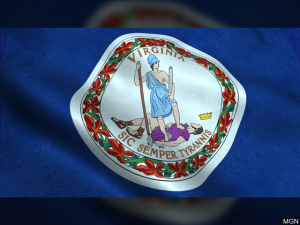 RICHMOND, Va. (AP) — Virginia Gov. Glenn Youngkin on Friday set a special election to fill the few remaining months in the term of a southwest Virginia lawmaker who recently resigned to become a judge.
RICHMOND, Va. (AP) — Virginia Gov. Glenn Youngkin on Friday set a special election to fill the few remaining months in the term of a southwest Virginia lawmaker who recently resigned to become a judge.
Voters will choose former Republican Del. Jeff Campbell’s successor in the 6th House District on Aug. 29, according to the writ of election signed by Youngkin.
Campbell resigned July 14 effective immediately after being appointed the same day to fill a judicial vacancy. He had represented the 6th District, made up of Carroll and Wythe counties and part of Smyth county, since 2014.
The new delegate chosen by voters will serve out the remainder of Campbell’s term, which ends in January. They may not see much action this year as the Legislature isn’t currently meeting, though lawmakers could be called back to Richmond if a deal to end the long-running budget stalemate is reached.
Every seat in the General Assembly is on the general election ballot in November, and candidates will be running under new maps overhauled during the redistricting process.
It wasn’t immediately clear if Jed Arnold, the GOP nominee running unopposed for the newly created 46th District, which includes some of the localities in the existing 6th District, would also run in the special election. His campaign didn’t immediately respond to a request for comment.
Arnold practiced law with Campbell and was his legislative aide.
The last day for candidates to file is Wednesday at 5 p.m., according to Youngkin’s office.
The new maps generated by the redistricting process have triggered a flurry of legislator retirement announcements. While there are other current legislative vacancies that are expected to go unfilled until the November general election, a new law that took effect July 1 set a deadline by which Youngkin was required to set the special election for Campbell’s seat.
WASHINGTON (AP) — The Supreme Court on Thursday allowed construction to resume on a contested natural-gas pipeline that is being built through Virginia and West Virginia.
Work on the Mountain Valley Pipeline had been blocked by the federal appeals court in Richmond, Virginia, even after Congress ordered the project’s approval as part of the bipartisan bill to increase the debt ceiling. President Joe Biden signed the bill into law in June.
The high court’s order came as a three-judge panel of the 4th U.S. Circuit Court of Appeals was hearing arguments in the case.
“All necessary permits have been issued and approved, we passed bipartisan legislation in Congress, the president signed that legislation into law, and now the Supreme Court has spoken: construction on the Mountain Valley Pipeline can finally resume, which is a major win for American energy and American jobs,” West Virginia Republican Sen. Shelley Moore Capito said in a statement.
Lawyers for the company said they needed quick Supreme Court action to keep plans on track to finish building the 300-mile (500-kilometer) pipeline and put it into service by the winter, when the need for natural gas for heating grows.
Environmental groups have opposed the the $6.6 billion project, designed to meet growing energy demands in the South and Mid-Atlantic by transporting gas from the Marcellus and Utica fields in Pennsylvania and Ohio.
Jamie Williams, president of The Wilderness Society, said in a statement that allowing the pipeline to proceed “puts the profits of a few corporations ahead of the health and safety of Appalachian communities. The Mountain Valley Pipeline is a threat to our water, our air, and our climate.”
West Virginia Attorney General Patrick Morrisey, who had asked the Supreme Court to take up the case, said after the ruling that there was an “urgent need” for the pipeline to be completed without delay.
The appeals court did not immediately rule on Mountain Valley Pipeline’s motion to dismiss challenges to the project over concerns about the pipeline’s impact on endangered species, erosion and stream sedimentation.
Derek Teaney, an attorney for Appalachian Mountain Advocates, told the appeals court that Congress’ action last month requiring that all necessary permits be issued for the pipeline’s construction “crosses the fence between the judicial power and the legislative power.”
Appeals Judge James A. Wynn acknowledged, “If we grant the motion, this is probably the last time we’re going to see it.”
Tyler Bradley Dykes, 25, of Bluffton, South Carolina, was arrested in Charlottesville, Virginia, and made his initial court appearance on Monday, according to court records. A federal judge ordered Dykes held in custody until a detention hearing on Wednesday.
Videos captured Dykes tearing down police barriers, attacking officers outside the Capitol and stealing a riot shield during a mob’s attack on Jan. 6, 2021, an FBI affidavit says.
In May, Dykes pleaded guilty to a state felony charge of burning an object with the intent to intimidate and was sentenced to 5 years in prison, with 4 1/2 years suspended. He was given credit for time he served in South Carolina while awaiting extradition to Virginia and finished serving his state sentence on Monday.
An FBI task force officer met and interviewed Dykes around January 2019 “regarding his potential ties to domestic extremist groups,” the officer wrote in an affidavit for the Jan. 6 case. Dykes may still have ties to extremist groups such as the South Carolina-based “Southern Sons Active Club,” the federal agent said.
Active clubs are a network of white supremacists who “see themselves as fighters training for an ongoing war against a system that they claim is deliberately plotting against the white race,” according to the Anti-Defamation League. In December 2021, the FBI received a tip from somebody who said Dykes had boasted about attacking officers at the Capitol. The tipster told the FBI that Dykes said he went there for “fun” and wanted to “make a statement.”
Dykes was wearing a gray gaitor over his face as he marched to the Capitol with two other people. Video shows him joining other rioters in tearing down barriers and attacking police officers on the east side of the Capitol, the FBI affidavit says.
The charges against Dykes include interfering with police during a civil disorder. An attorney from the federal public defender’s office was assigned to represent Dykes at his initial court appearance in Roanoke. That lawyer said he can’t comment on the charges.
 FALLS CHURCH, Va. (AP) — A federal appeals court’s ruling last month about the admissions policy at an elite public high school in Virginia may provide a vehicle for the U.S. Supreme Court to flesh out the intended scope of its ruling Thursday banning affirmative action in college admissions.
FALLS CHURCH, Va. (AP) — A federal appeals court’s ruling last month about the admissions policy at an elite public high school in Virginia may provide a vehicle for the U.S. Supreme Court to flesh out the intended scope of its ruling Thursday banning affirmative action in college admissions.
The Thomas Jefferson High School for Science and Technology, outside the nation’s capital, routinely ranks as one of the best public schools in America; admission is highly competitive.
A coalition of parents, backed by a conservative legal foundation, filed a lawsuit in 2021 challenging the admissions policy at TJ, and the foundation is asking the Supreme Court to take up the case. The suit raises similar but not identical issues to those addressed by the high court’s ruling rejecting admissions policies at Harvard and the University of North Carolina as unconstitutional.
The colleges’ admissions rules took an applicant’s race into account as one of many factors to be considered. In the TJ case, though, all sides agree the admissions polices are race-neutral on their face.
But the coalition that filed the lawsuit says the admissions criteria amount to “race-based proxies” implemented to achieve racial balancing. They say the policy discriminates against Asian Americans, who had constituted 70% of the student body.
The coalition also cites the debate among Fairfax County School Board members when they implemented their new policy in 2020. Board members and administrators expressed frustration that Black and Hispanic students had been woefully underrepresented at TJ for decades. The coalition argues the new policies are intended to boost Black and Hispanic representation at the expense of Asians.
The first freshman class admitted under the new rules saw a significantly different racial makeup. Black students increased from 1% to 7%; Hispanic representation increased from 3% to 11%. Asian American representation decreased from 73% to 54%.
The new policies replaced a standardized test with a process that allocates a percentage of seats on a geographic basis and takes a student’s “experience factors” into account, like whether they come from a low-income household or speak English as a second language.
Last year, a federal judge found the admissions policy unconstitutional, saying “the discussion of admissions changes was infected with talk of racial balancing from its inception.”
But in May, the 4th U.S. Circuit Court of Appeals in Richmond reversed that ruling. In a 2-1 decision, the judges said the school board had a legitimate interest in increasing diversity and that labeling those efforts as discrimination against Asian Americans “simply runs counter to common sense.”
The Pacific Legal Foundation, which represents the parents claiming anti-Asian discrimination, is asking the U.S. Supreme Court to take the case.
“We think it presents a really strong vehicle and the time is right. And we’re certainly hopeful the court will take it up,” said Joshua Thompson, a senior attorney at the foundation.
Eugene Kontorovich, a law professor at George Mason University, said there will be years of follow-up cases to Thursday’s ruling, as is typical with major Supreme Court cases, as colleges drag their feet and look for ways to salvage policies to which they are ideologically committed.
He was less certain, though, that the TJ case will be significant. He said the debate over the constitutionality of TJ’s policies will be fact-intensive and center on what can be proved about the school board’s motivations in implementing the policy.
More likely, he said, is debate over how colleges use essay questions on topics like diversity to achieve the same results as the now-banned affirmative action programs.
Supreme Court Chief Justice John Roberts’ majority opinion left a little bit of wiggle room on that front when he wrote that colleges can consider an individual’s application essay and “how race affected his or her life, be it through discrimination, inspiration or otherwise.”
But Roberts also noted that colleges “may not simply establish through application essays or other means the regime we hold unlawful today.”
Kontorovich said colleges will ask essay questions about topics like diversity “that will give them the latitude to quietly take race into consideration in ways that will be more subtle.” Ultimately, though, he thinks the court, at least as it’s currently constituted, will reject those sorts of end-around attempts.
Fairfax County Public Schools said Friday it is reviewing the Supreme Court ruling.
Thompson said Pacific Legal expects to formally submit its petition to the Supreme Court in August and will likely know by the end of the year whether the case will be heard.
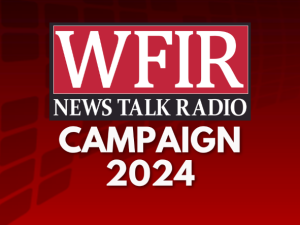 RICHMOND, Va. (AP) — Most Republican candidates running for the Virginia legislature this year are centering their pitches to voters on issues such as education, the cost of living and gun rights.
RICHMOND, Va. (AP) — Most Republican candidates running for the Virginia legislature this year are centering their pitches to voters on issues such as education, the cost of living and gun rights.
But for a small segment of contenders, former President Donald Trump’s false claims of a rigged 2020 election have remained an important campaign selling point heading into Tuesday’s primary.
“There’s still an underlying distrust of the election process by Republicans,” said state Sen. Amanda Chase, who is in a three-way primary for a GOP-leaning seat in suburban Richmond.
Chase has persistently repeated Trump’s lie that the 2020 election was stolen, once called for martial law to overturn the results and was censured by the state Senate for telling falsehoods and voicing support for those who attacked the U.S. Capitol on Jan. 6, 2021.
She is one of at least six Republican candidates for the General Assembly who attended Trump’s “Stop the Steal” rally or the subsequent march to the Capitol. All say they did not enter the building during the riot, and none has been charged with a crime. Another GOP candidate is a lawyer who worked on Trump’s attempts to reverse his loss in Wisconsin, a result that was affirmed in recounts and audits.
Nearly three years after Democrat Joe Biden won the White House, the Virginia candidates’ messaging shows the durability among Republicans of Trump’s claims, something that’s been reflected in previous election cycles and echoed in polling. In interviews, recent appearances or social media posts, those candidates who were in Washington on Jan. 6 have either defended claims that the election was rigged, worn their attendance as a badge of honor or pledged to pursue major changes to Virginia voting laws if elected.
Virginia is one of the few states that holds its state legislative races in odd years. Every seat is on the ballot in a year where control of the General Assembly, which is split between Democrats and Republicans, is up for grabs.
In last year’s midterms, candidates who rejected the 2020 results fared poorly, with deniers losing every bid for statewide office in the swing states of Arizona, Michigan, Nevada, Pennsylvania and Wisconsin.
Virginia, a quasi-swing state with its unusual off-year election cycle, is closely watched for hints of voter sentiment heading into the following year’s midterm or presidential cycle. How some of the Jan. 6 attendees fare this year could offer further insight on voters’ willingness to back candidates who continue to embrace the false claims by Trump, who lost the state to Biden in 2020 by about 10 percentage points.
Most of the Virginia statehouse candidates who attended the Jan. 6 rally or march said that if Republicans can win majorities in both chambers, they would push to roll back voting changes enacted by Democrats. They expanded access to early voting and absentee ballots, and eliminated the previous voter ID requirement.
John McGuire, a former Navy SEAL and current House of Delegates member, has said in interviews that he wants to change election laws in order to “turn Virginia red again.”
“If we can lock arms and get the House, get the Senate, change the election laws, get rid of election season, get a voter ID, ban these drop boxes that are not secure, we could have a red state that could be in play for 2024,” he said in an April interview on the John Fredericks radio show.
To be clear, the 2020 election was not stolen from Trump, who is dominating early primary polls for the GOP presidential nomination in 2024. Multiple reviews, recounts and audits in the battleground states where Trump contested his loss validated Biden’s victory. Even Trump’s former attorney general said there was no evidence of widespread fraud in the 2020 election, and dozens of judges, including several nominated by Trump, rejected his claims. An Associated Press review of every potential case of voter fraud in the six battleground states disputed by Trump found no evidence of widespread fraud.
None of the six Virginia legislative candidates is running in any of the highly competitive swing districts that are expected to help determine party control in the fall. In all but one case, the winner of the Republican nomination is almost assured of winning the seat.
McGuire has already won a party-run Senate nomination contest in a heavily Republican district after receiving Gov. Glenn Youngkin’s endorsement. Another, former Chase aide and House candidate Jody Pyles, recently lost his bid for the GOP nomination to an incumbent in a different party-run process. Neither responded to requests for comment.
Philip Hamilton, a longshot candidate with no primary opponent in a heavily Democratic Senate district that includes Charlottesville, said he questions whether Biden was legitimately elected but isn’t emphasizing the issue in his campaign.
In addition to Chase, the other Jan. 6 participants on Tuesday’s ballot are current state delegates Dave LaRock and Marie March.
LaRock did not agree to an interview request from the AP but responded to questions by email. He has made 2020 a central part of this year’s campaign as he competes with seven other Republicans for the party’s nomination in a deep red Shenandoah Valley-area Senate seat.
“I have no regrets about participating in the peaceful, political free-speech rallies on January 6. I spoke out against the violence and lawbreaking as soon as I learned of it through news reports,” he said, adding that people who did not break the law “had every right to be there.”
Former Trump national security adviser Michael Flynn, who at one point suggested that Trump could invoke the military to stop Biden from taking office, endorsed LaRock last month. He lauded LaRock for his “faithfulness to the cause” when LaRock wrote a letter asking then-Vice President Mike Pence to delay the certification of Virginia’s presidential electors in the 2020 race.
March, who didn’t respond to requests for comment, told a crowd about her Jan. 6 participation in April, mentioning at a campaign event that restaurants she owned were “attacked relentlessly” because she was there.
March faces a primary contest against another delegate, Wren Williams in one of the state’s few incumbent-on-incumbent matchups, a result of new district maps created through redistricting.
Williams, who worked on Trump’s Wisconsin legal team, said in an interview that the 2020 election was “absolutely rigged” but that liberals are the ones keeping the issue front and center. Biden’s victory in Wisconsin and the lack of any widespread fraud has been affirmed through recounts and a nonpartisan audit — even a partisan investigation ordered by legislative Republicans.
“I feel like the left is the one more interested in 2020 and the 2020 election and Jan. 6 because they inevitably have very little record to run on with Joe Biden’s administration and the wreckage and the damage that they’ve done to America over the last few years,” Williams said.
The six candidates who were in Washington on Jan. 6 are among a longer list of Republicans running for office in Virginia who have pushed false claims about the 2020 election, the Democratic Legislative Campaign Committee said in a new research report.
The group’s research counts 16 total candidates in Virginia’s 2023 state legislative races who have engaged in what the DLCC calls “election denial or other anti-democratic activity.”
Among them are candidates who attended local “Stop the Steal” rallies after the 2020 election, shared false claims of voter fraud or promoted the debunked film “2,000 Mules.”
Heather Williams, interim president of the Democratic Legislative Campaign Committee, said those types of candidates “are an ongoing threat to our democracy.”
“State legislatures are the most impactful level of the ballot when it comes to our elections and voting rights, and with these extreme candidates and lawmakers running, the stakes couldn’t be higher this cycle,” she said.
Rich Anderson, chairman of the Republican Party of Virginia, pushed back on that argument. He said in an interview that while he thinks most GOP candidates are looking forward, candidates should have the license to freely discuss their beliefs on any issue.
America is a “sturdy” nation that has been through “lots worse than somebody who may feel concerns over the process of the 2020 election and its ultimate outcome,” he said.








